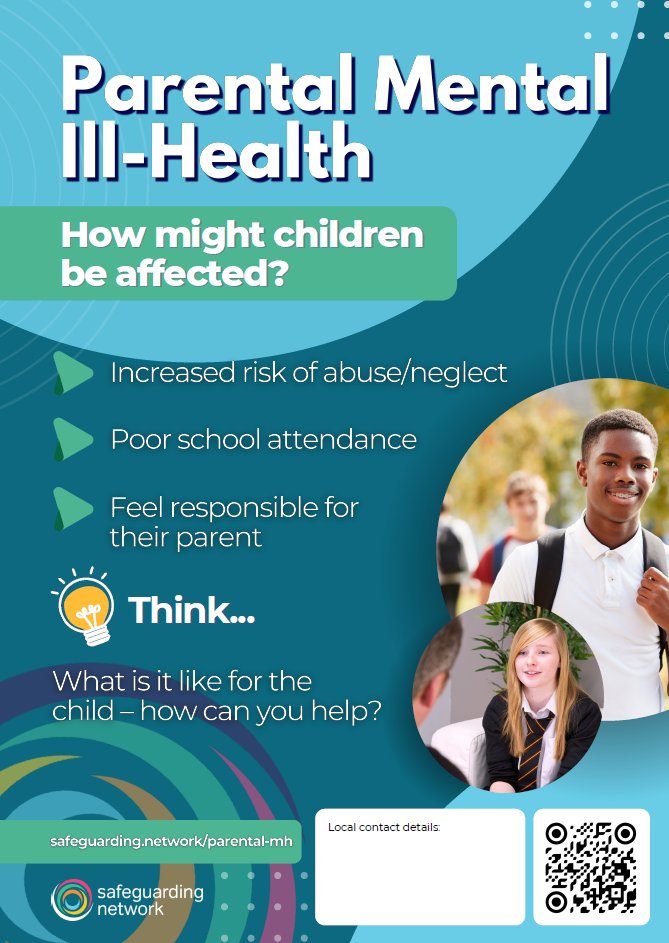Introduction
According to Public Health England, 1-in-6 adults will have experienced a common mental health problem in the last week and severe mental illness, such as bipolar disorder or schizophrenia, affects half a million adults in England.
There remains much stigma attached to mental health problems which often remain hidden, and many do not receive the support they need.
A report from the Office of National Statistics reveals mental health and well-being in the UK worsened during the pandemic and remains higher than pre-pandemic levels due to the cost-of-living crisis. Financial concerns, particularly for families, can cause increased levels of anxiety and depression.
Need more?
Thank you for visiting our resources pages. These are free to everyone as is our fortnightly safeguarding bulletin – general safeguarding information is too important to restrict. Become a member to access lots more, including training materials for you to deliver in-house on each topic in Keeping Children Safe in Education.
Sign up for FREE fortnightly bulletin.
What about training?
We can deliver training for your setting on this and other subjects via online platforms, or face-to-face in certain areas. Just get in touch to discuss your requirements.
The Children’s Commissioner estimates that a third of children in England aged 0 to 15 live with a parent with moderate to severe mental ill-health symptoms.
For some, the presence of mental ill-health may have little or no impact on the day-to-day parenting that they receive, with the child or young person remaining safe and feeling loved and valued. For others, the impact may be more significant, meaning that the child or young person requires help and support to understand what is happening and reduce the impact on their health and development.
Definition of good mental health
Mental well-being is about thoughts, feelings and how people cope with the ups and downs of everyday life. Having positive well-being means that every individual realises their own potential, can cope with the normal stresses of life, help engage in work productively and can contribute to their community.
What impacts on mental health?
Just like physical health conditions, several things can impact our mental health, and these can be because of specific events or can build up over time. As humans, we all have good and bad days, and you will know how an unexpected event can impact how you feel for the rest of the day or longer. Stress and duress can also have an impact on how we feel and how we relate to the world around us.
Factors which can impact mental health include relationship issues, financial worries, employment worries, housing issues, discrimination, victimisation and abuse. Mental ill-health can also be made worse by substance misuse and domestic abuse. For some people, events that happened earlier in their lives can be the cause of current mental health difficulties, for example, abuse that they experienced as a child or young person.
Impact on children/young people
Most children and young people can cope very well with upsets if they are short-lived and they know what is happening, but adults often feel the best way to help them is to protect them from the truth, so they do not explain what is happening.
This can leave children and young people feeling:
- frightened of what will happen to them or their parent/carer;
- to blame for the situation;
- worried that they might develop the same condition;
- stigmatised;
- confused by their parent’s erratic behaviour.
As a result of parental mental ill-health, children may:
- become young carers;
- have been neglected because their parents cannot look after them;
- be teased and bullied by their peers;
- experience periods of separation from parents who have to leave the home for treatment;
- experience emotional abuse.
Spot the signs
Children and young people with a parent experiencing mental ill-health may:
- be tired;
- worry about what is happening at home;
- have poor school attendance;
- wear dirty clothing;
- display hunger, malnourishment, neglect;
- be distressed;
- develop poor mental health;
- have poor emotional responses to stressful situations;
- become isolated, have poor relationships, be bullied;
- misuse alcohol and/or drugs;
- display negative behaviour that may be due to stresses at home and a cry for help.
What to do
- Listen to the child or young person – what is life like for them, what are their fears, worries and wishes?
- Help the child or young person to understand what is happening with their parent.
- Create an open culture – avoid jumping to conclusions about what their life must be like. Not all children and young people are affected by their parent’s mental ill-health.
- Understand what other things may be present – for example, what additional stress there may be in the family (e.g., financial, relationship, abuse, etc.)?
- Look at what adaptations you can make to support young carers.
- Check children and young people have safe relationships – in their family, with their peers and with your staff. Create a culture where it’s okay to talk even about the most difficult things. Where do they go to get help and support? What about when things are difficult at home (e.g., in the late evening)?
- Know the signs and know what to do – use the list above to consider what you are seeing, follow your safeguarding procedures and have the confidence to raise parental mental ill-health as a possibility.
- Take action – and keep taking action until you know children and young people safe.
Free parental mental ill-health poster
This free, downloadable resource raises the profile of safeguarding for your staff team. For use in staff rooms, on safeguarding boards or on the back of toilet doors, the poster includes tips, a space for local contact details, plus a link and QR codes to this resource page. Download the poster from the resources below.
DSL Training Materials
-

Parental Mental Ill-health Presentation
-

Parental Mental Ill-health - Presenter Notes
-

Handout for staff - Parental Mental Ill-health
-

Parental Mental Ill-health – Quiz
-

Parental Mental Ill-health – Quiz (Answer Sheet)
-

Parental Mental Ill-health Scenario – Early Years Settings
-

Parental Mental Ill-health Scenario – Early Years Settings – DSL Information Sheet
-

Parental Mental Ill-health Scenario – Primary Schools
-

Parental Mental Ill-health Scenario – Primary Schools – DSL Information Sheet
-

Parental Mental Ill-health Scenario – Secondary Schools
-

Parental Mental Ill-health Scenario – Secondary Schools – DSL Information Sheet
-

Parental Mental Ill-health Scenario – 16+ Settings
-

Parental Mental Ill-health Scenario – 16+ Settings – DSL Information Sheet
-

Parental Mental Ill-health Scenario – SEND Settings
-

Parental Mental Ill-health Scenario – SEND Settings – DSL Information Sheet
-

Parental Mental Ill-health scenario – Care Settings
-

Parental Mental Ill-health scenario – Care settings – DSL Information Sheet
-

My mum’s got a dodgy brain
-

Parental mental ill health – whole group exercise
-

Parental mental ill health – whole group exercise – DSL sheet
Resources
-

Parental Mental Ill-health Poster
-

I had a black dog, his name was depression
-

The Mental Health Foundation
-

NHS 5 steps to mental wellbeing
-

Parenting and mental health - MIND
-

Parental mental illness
Save time and improve your safeguarding approach…
Bite-size training materials to share with your staff every month.
Support to explore and develop your safeguarding culture.
A huge array of resources and professional experience at your fingertips.
Get in touch now for a personal tour of the site and details of membership benefits.
We look forward to working with you.


